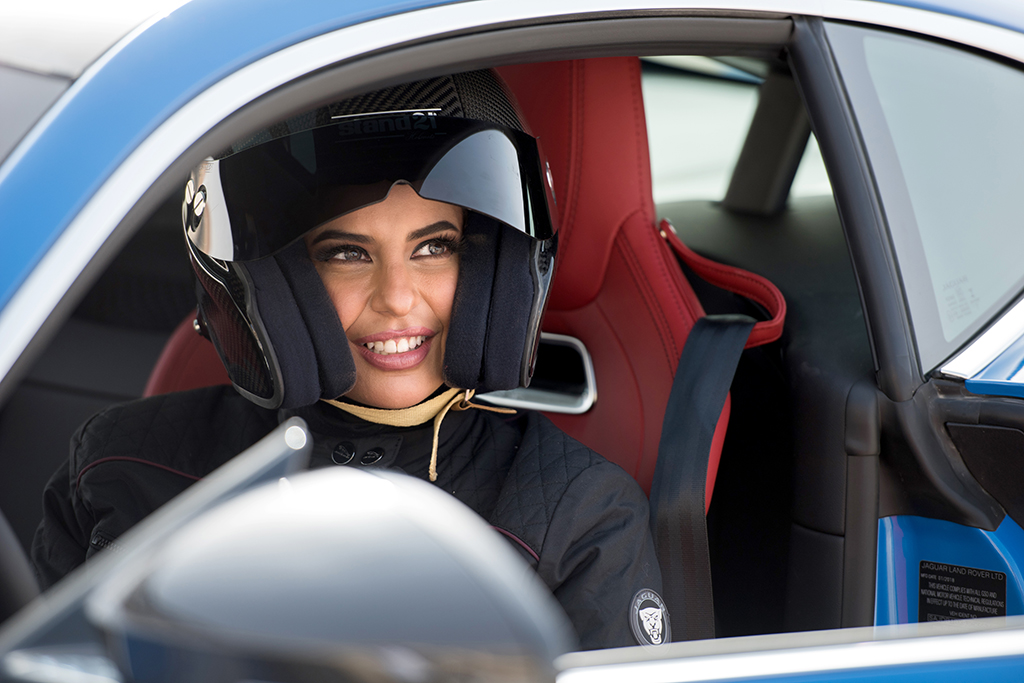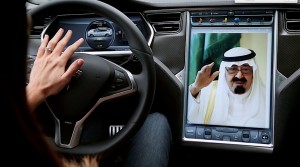She’s an experienced race driver and member of her country’s Motor Federation, but this weekend marked a special occasion for Aseel Al Hamad, the first day she could drive in her home country.
Until Sunday, Saudi Arabia was the only country in the world where women were barred from driving, but after years of external pressure and internal protest, the ban was finally lifted. While there are still significant restrictions on what women can do in the Mideast kingdom, it means women no longer have to depend on male relatives, hired drivers or ride-sharing services to get around.
For Al Hamad, it also meant that she could drive on a Saudi track for the first time, assisted by Jaguar which provided her with an F-Type sports car to mark the special occasion. The irony is that Al Hamad not only has become an experienced driver abroad but is the first feale member of the Saudi Arabia otor Federation and the country’s representative on the Women in Motorsport Commission for FIA, the Fédération Internationale de l’Automobile.
“Having loved cars since I was a child, today is highly emotional for me,” Al Hamad said in a statement released by Jaguar, which marked the lifting of the sedan by declaring Sunday “World Driving Day.” The occasion, she added, marked “the best driving moment of my life.”
(Allowing women to drive could have big impact on Saudi car market. Click Here for the story.)
With its ultra-conservative form of Islam, Saudi Arabia still maintains some of the most severe restrictions on women’s rights in the world, though the ruling family has been bucking opposition from hardline clerics by opening up some opportunities, including the first appearance by a Saudi woman athlete during the last summer Olympic games.
Lifting the ban on driving has been a matter of debate for years and some of the women who had protested the restrictions are currently in jail. But after crafting a registration process, the country allowed the first licensed female drivers to take to the streets on Sunday.
Proponents believe the impact will be substantial considering women make up half the 20 million population of the Hashemite Kingdom. Previously, a woman who wanted to do something as simple as buy groceries or shop for clothing and household goods would have to wait for a family member, call a ride-sharing service or hire a driver.
They can now travel on their own, something that could make it easier not only to shop, but to attend university or even get a job. Until now, only a small percentage of Saudi women have worked outside the home, according to government data.
There could be new opportunities in the automotive industry, in fact. Saudi Arabia is already the largest car market in the Mideast, new vehicle sales expected to top 400,000 this year. And the Council of Saudi Chambers is estimating that women drivers will help fuel anywhere from a six to 10% increase in sales in the near-term.
How many women will actually get licensed, never mind buy a car, is uncertain, however. Saudi laws still give fathers, husbands and other male relatives virtual veto power over key personal and financial decisions.
Nourah Almehaize situation is an ironic example. She spent six years working in an auto industry call center and, in April, got a job in a Ford dealership. But despite her desire to get her own license, she has been told to wait by her husband.
“He is telling me not to (drive right away), to postpone it for a year until we see what it will be like, but I will apply anyways,” Almehaize told the Associated Press. “Currently, I have a driver. After a year I may not need him if I’ve had enough practice and I’m comfortable.”
(Saudi production hike helps level off gas prices for summer. Click Here for more.)



